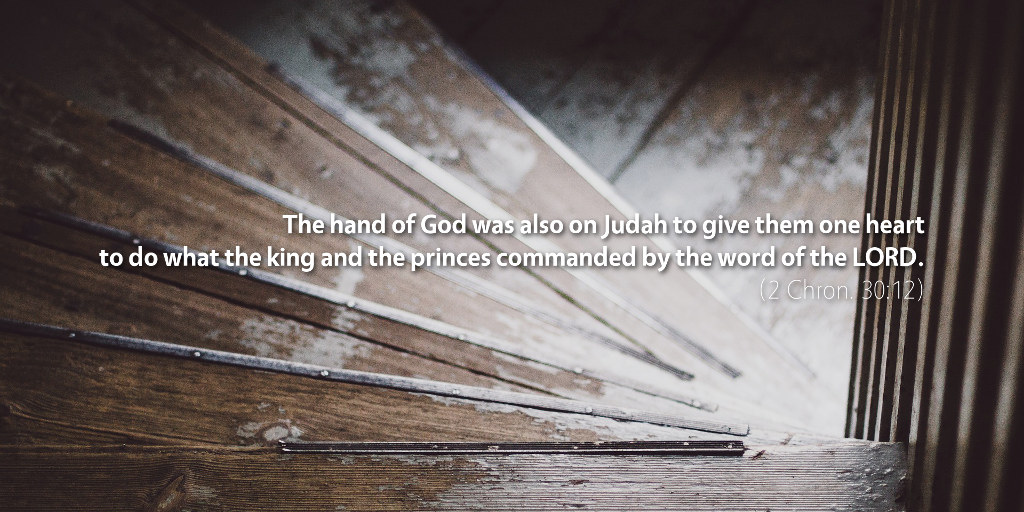Bible Readings for December 25th
2 Chronicles 30 | Revelation 16 | Zechariah 12 | John 15
In 2 Kings 23, King Josiah (the great-grandson of King Hezekiah) restores the Passover feast. Even though that restoration of Passover comes much later in time than the story we read here in 2 Chronicles 30, we nevertheless find this statement: “For no such Passover had been kept since the days of the judges who judged Israel, or during all the days of the kings of Israel or of the kings of Judah” (2 Kgs. 23:22).
Notice, however, that the author of 2 Kings doesn’t say that no Passover took place before Josiah but that no such Passover had taken place. The story we read here in 2 Chronicles 30, then, describes not a proper Passover such as the one that Josiah would celebrate many years later but actually a defective Passover. For starters, the Passover was to be observed during the first month (Ex. 12:1–6; Lev. 23:5; Num. 28:16), but yet we read several times in this chapter that Hezekiah’s Passover is held during the second month (2 Chron. 30:2, 13, 15). More than that, a great number of people during the assembly were not properly consecrated (2 Chron. 30:17–18). And yet, we nevertheless see that there was great joy in Jerusalem (2 Chron. 30:26) and that Yahweh himself blessed this celebration of the Passover (2 Chron. 30:20, 27). What can we learn from this?
It is important to recognize that this was a day of revival, where all the people were guided by Yahweh himself back from the idolatry of Ahaz into true worship: “The hand of God was also on Judah to give them one heart to do what the king and the princes commanded by the word of the LORD” (2 Chron. 30:12). Some details were dropped, but their love for Yahweh leads them to celebrate the Passover imperfectly rather than missing out on Yahweh’s feast completely for another year.
But as good this was, the failure to obey Yahweh in every respect means that this is not as good as it might have been. When King Josiah comes, he reforms the worship of Yahweh’s people further, correcting even the details. Where Hezekiah’s Passover was good, then, Josiah’s Passover was better, so that “no such Passover had been kept since the days of the judges.”
What this means is that we cannot rationalize a lack of joy in worship by appealing to the fact that we worship correctly, but we also cannot sacrifice the true means of worship that God himself instituted (reading and preaching the word, prayer, and the sacraments) in order to try to find joy in some other kind of worship. Jesus came to reform worship in his church so that we might forevermore worship Yahweh in both spirit and in truth—with joy and with precision. Which side do you tend to over-emphasize?
Podcast: Play in new window | Download (4.9MB) | Embed
Subscribe: Apple Podcasts | RSS | More

Scripture quotations are from The Holy Bible, English Standard Version copyright © 2001 by Crossway Bibles, a division of Good News Publishers. Used by permission. All rights reserved.


